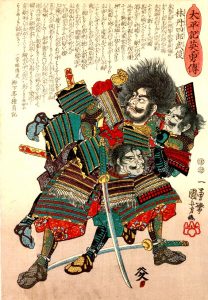 I always wondered why people and things from China and Japan are Chinese and Japanese, and not, say, Chinan and Japanian. As someone with Chinese ancestry, the word in English always had an exotic ring – a foreign ring. Growing up, none of my contemporaries in Virginia were an -ese. They were French, British, Irish, German, Swedish, Italian, Mexican, or African. Chinese and Japanese stood out, and when you’re a kid, that’s bad.
I always wondered why people and things from China and Japan are Chinese and Japanese, and not, say, Chinan and Japanian. As someone with Chinese ancestry, the word in English always had an exotic ring – a foreign ring. Growing up, none of my contemporaries in Virginia were an -ese. They were French, British, Irish, German, Swedish, Italian, Mexican, or African. Chinese and Japanese stood out, and when you’re a kid, that’s bad.
The suffix -ese still has an alien ring to my ears, which may be why the writers of Star Trek chose Klingonese as the demonym as opposed to Klingonian or Klingonite. Even Portuguese has an otherworldly air, even though it’s a kissing cousin to Spanish. Certainly Togolese and Congolese, which follow no orthographic logic in their formation, describe to me dense, inscrutable people.
 But the origins of the suffix -ese are not so exotic to European folk. They come to English (as so many words do) from the French -aise. Examples: Lyonnaise, hollandaise, and mayonnaise. No American is going to call mayonnaise exotic.
But the origins of the suffix -ese are not so exotic to European folk. They come to English (as so many words do) from the French -aise. Examples: Lyonnaise, hollandaise, and mayonnaise. No American is going to call mayonnaise exotic.
Thinking of demonyms for people from China brings up a suffix I didn’t cover last time: –man. Chinaman once carried the same neutral color as Englishman or Frenchman, only to gain its offensive tone the more it was spat instead of spoken. As you can see, what’s interesting about Chinaman is that it adds the -man suffix to an unmodified place name instead of the descriptor demonym. Chineseman would be more consistent. Of course, this is all before we get to the possible controversies of using “man” to describe both men and women. So a man from Man (the Isle) is a Manxman. But so is a woman from Man.
— Otto E. Mezzo
